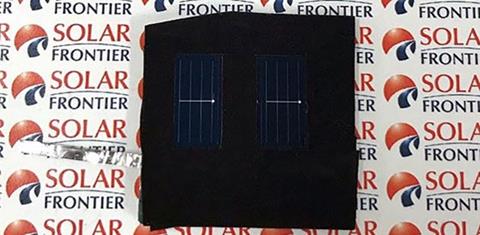Solar Frontier has set a new efficiency record for its Copper/Indium/Selenium (CIS) based cell technology. The company worked with the Japanese Government’s Energy and Industrial Technology Development Organization (NEDO) to achieve a conversion efficiency of 22.9% on a 1cm² cell.
This record has been confirmed by the National Institute of Advanced Industrial Science and Technology in Japan, and adds 0.3% to the previous record, set by the Center for Solar Energy and Hydrogen Research, Baden Württemberg (ZSE) in February 2016, and 0.6% to Solar Frontier’s previous record of 22.3%, achieved in December 2015.
The record is in line with Solar Frontier’s reported plan to focus on R&D and products for the Japanese residential market, where limited space make efficiency a key consideration. The development was made possible, says Solar Frontier, thanks to CIS absorber engineering, and enhanced surface treatments of the absorber layer.
Solar Frontier previously reported stable demand for its products in 2017, but has struggled with falling module prices. It is currently undergoing a process of consolidation to bring all production to its flagship 900 MW facility, and focusing on selling its products in Japan, where it can achieve greater profits.
This content is protected by copyright and may not be reused. If you want to cooperate with us and would like to reuse some of our content, please contact: editors@pv-magazine.com.




1 comment
By submitting this form you agree to pv magazine using your data for the purposes of publishing your comment.
Your personal data will only be disclosed or otherwise transmitted to third parties for the purposes of spam filtering or if this is necessary for technical maintenance of the website. Any other transfer to third parties will not take place unless this is justified on the basis of applicable data protection regulations or if pv magazine is legally obliged to do so.
You may revoke this consent at any time with effect for the future, in which case your personal data will be deleted immediately. Otherwise, your data will be deleted if pv magazine has processed your request or the purpose of data storage is fulfilled.
Further information on data privacy can be found in our Data Protection Policy.